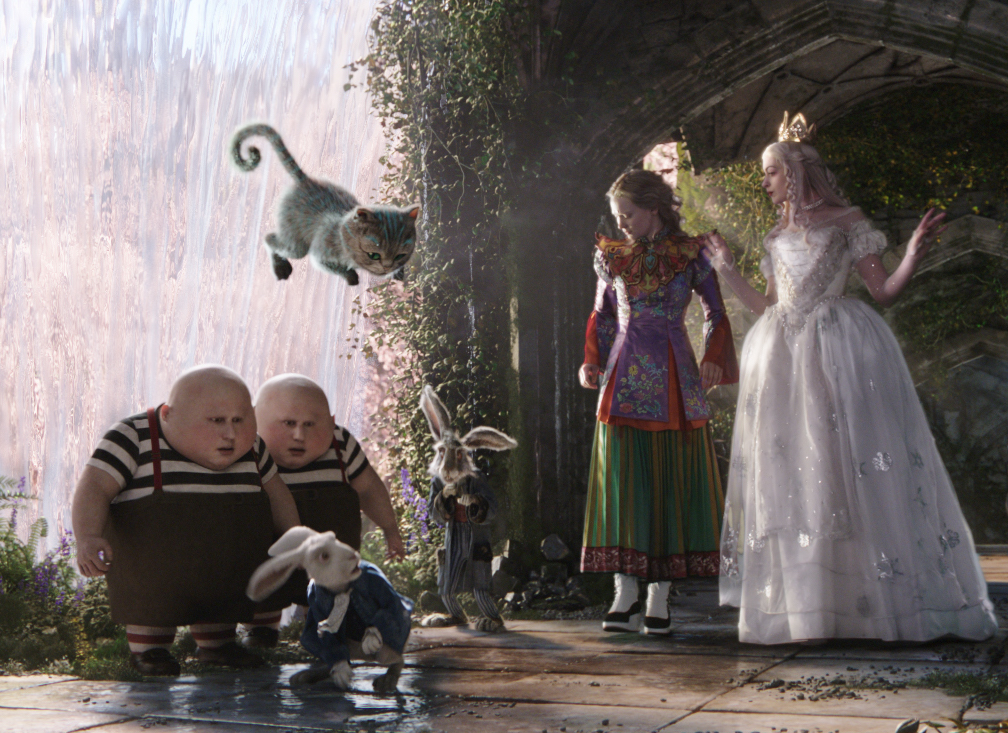
Mia Wasikowska as Alice and Anne Hathaway as the White Queen in Alice Through the Looking Glass. Photo courtesy: Disney Pictures
The best movies make you forget they were actually written, directed and produced. In the audience’s mind, there was no screenwriter clacking away on a keyboard to write the script. Or any actors prancing around a set with walls so thin they could be knocked down with a simple push. You forget everything that goes into making the movie when the story is good.
But when a movie has problems, on the other hand, everyone is a critic. And this is the big conundrum in being a filmmaker and criticizing film, doesn’t everyone who makes a movie want it to be good? We think so, but that doesn’t mean you can’t learn from someone else’s mistakes. Let’s take Alice Through the Looking Glass, the $170 million budgeted movie, which premiered May 27 and has barely since crossed the $40 million earning mark domestically at the box office.
So, how does a movie with so much potential, so many stars and so much cash behind it fail to measure up? We think it all starts with story. If you have that down, everything else falls into place. Here are five DON’TS when it comes to story that we learned from Alice Through the Looking Glass.
No. 1. Don’t Change the Protagonist of a Beloved Story.
Lewis Carol’s 1865 book Alice’s Adventures in Wonderland is one of the most beloved stories of modern times. We love Alice. We’ve loved her stories since we were children. We go to these movies to spend time with her and watch her struggle and grow in a crazy fantasy world that often feels like our own nutty lives. We want Alice to be emotionally tortured, physically overwhelmed and pushed to her limit so we can sit back and watch how the clever girl is going to solve her big problem.
In the first book, Alice finds herself stuck in a real life card game. In order to succeed, she must learn she has no control over the next proverbial card she’s being dealt. In the next book, Through the Looking Glass, a deck of cards becomes a game of chess. Alice has to make her way across the game board.
Director James Bobin (Muppets Most Wanted) and writer Linda Woolverton (2010’s Alice in Wonderland) ditched not only the chess game in their adaptation, Alice Through the Looking Glass, but making Alice the main character. The film focuses on The Hatter (Johnny Depp decorated in a frightening kaleidoscope of colored wigs and contact lenses). He needs Alice’s help to get into a time machine and bring his family back in miniature form to live in an ant farm. Sound bizarre? Even for a fantasy film, it is. Making Hatter the main character — the person with the biggest problem in the story — fundamentally breaks the structure of the book, and the trickle down effect makes for a broken story.
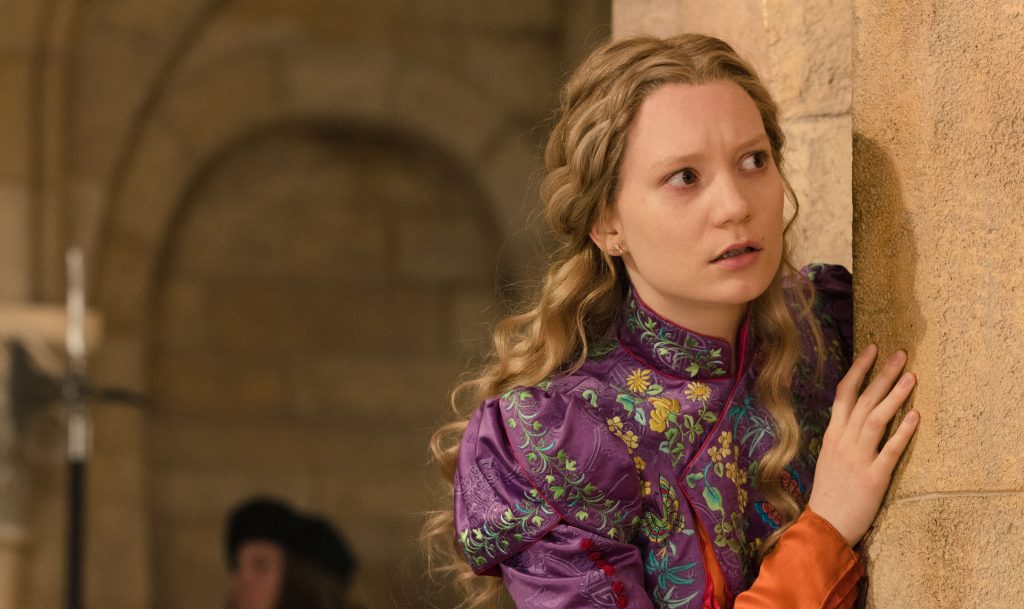 Photo courtesy: Disney Pictures
Photo courtesy: Disney Pictures
No. 2 — Write From the Character’s Point of View, Not the Writer’s.
Say what? There are two players in the world of screenwriting — you and your characters. Your characters should always drive story, not you. I know that sounds weird, but think about it. If you want your characters to have a time machine, but they aren’t really sure they need it, then you’re driving the story, not them.
It happens innocently like this during a brainstorming session. “Hey, wouldn’t a time machine be cool?” It does sound like a cool idea. Time machines are great. But do they really fit into this world of Alice and the fantastical creatures that surround her? Maybe not. When the writer’s objective beats out the protagonist’s objective, the story feels inauthentic.
Alice Though the Looking Glass is guilty of this classic mistake in more ways than one. Clearly, the writer also wanted to give Depp a starring role, but did so at the expense of allowing Alice to make a personal journey. Alice’s story gets lost in the shuffle. The writer tries to justify this decision by using the Hatter’s problem to build Alice’s confidence, but it’s too little, too late.
Build your characters from the ground up. Focus on what they truly want and their personal points-of-view, and the story will naturally follow.
No. 3 — Don’t Get Star Struck
Yes, Johnny Depp can bring big box office dollars, and it’s great to have fantastic actors cast in your movie. But that doesn’t mean you need to change the story to fit the size of their careers. If Depp’s character, the Hatter, had remained a device to antagonize Alice on her journey to the end, even if it were a smaller one, the story wouldn’t have suffered nearly as much. But, here, they pushed Depp’s star power into a bigger role and lost sight of the elements that make this story so great.
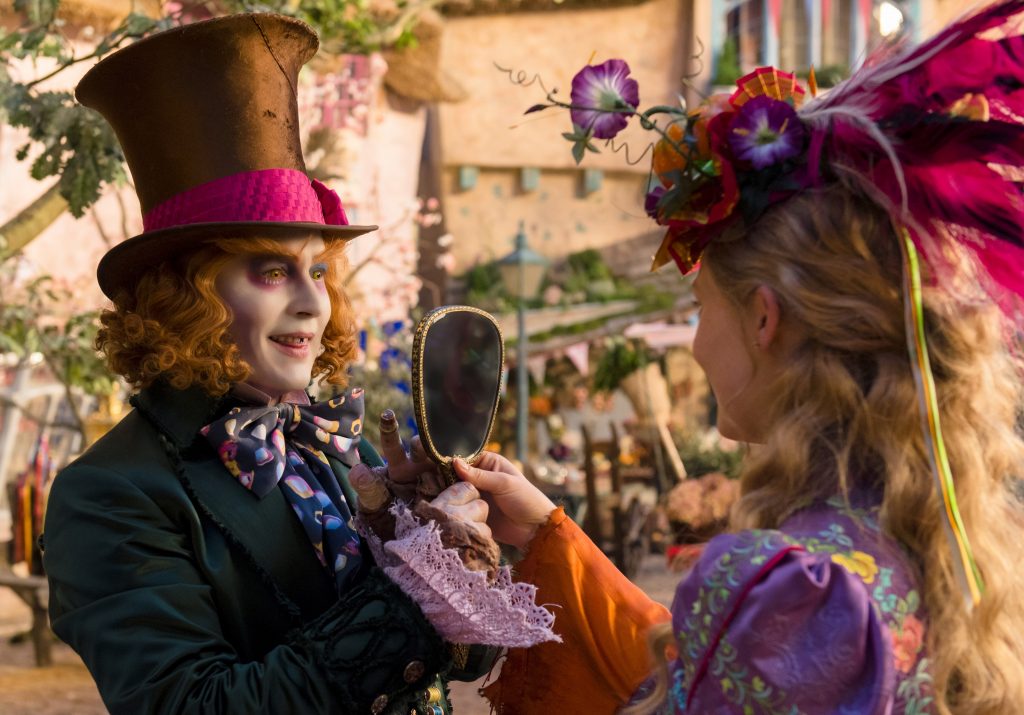
Johnny Depp plays The Hatter in Alice Through the Looking Glass. Photo courtesy: Disney Pictures
No. 4 — Don’t Make Your Main Character Boring
This is a classic mistake in building a great protagonist. In Alice Through the Looking Glass, the filmmakers tasked Alice with solving the Hatter’s problem instead of giving her a large enough problem of her own to warrant the A story.
Yes, Alice needs to save her mother’s house and reclaim her father’s business from her ex-fiancé, Hamish Ascot, but it becomes a sidebar to the main story. And it’s not very interesting, to say the least. Alice’s plot line isn’t very interesting and her character is also too passive. Because of that, the audience just isn’t as invested in her as we could be if she had a stronger role and arc. What does Alice want? Love? Adventure? A family? A career?
By the filmmakers’ own twisted logic, the film’s title really should have been Hatter Through the Looking Glass, but no one bought tickets to see that. When you built your protagonist’s storyline, ask yourself is this something you’d go to the movie theaters to see? Would you pay $14 to sit for two hours and take this journey? If the answer is no, you need to rethink your plot.
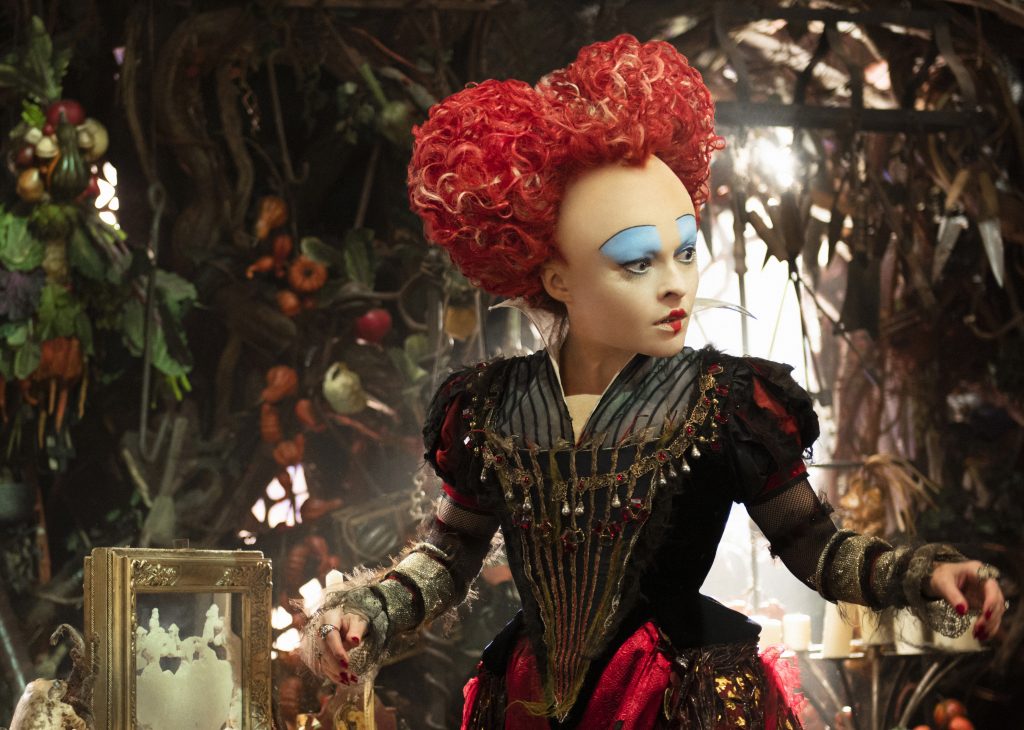
Helena Bonham Carter plays the Red Queen Alice Through the Looking Glass. Photo courtesy: Disney Pictures
No. 5 — Don’t Turn a Minor Complication Into a Main Story Line
By very definition, the Hatter is a complication for Alice – a delicious, insane, comical one, but really just an obstacle preventing Alice from getting out of the rabbit hole or back onto the right side of the mirror. The Hatter isn’t supposed to be sympathetic – even to a girl as nice as Alice. The Hatter is much more powerful doing what he’s good at which is being insane and making Alice’s journey as strange and difficult as possible.
In The Wizard of Oz, Dorothy helps her companions, but ultimately has to solve the problem of getting home for herself, not spend the entire movie searching for the Tin Man’s heart. Focus your characters on a journey that’s personal to them and you won’t fall into this kind of writing rabbit hole.
This is our analysis of Alice Though the Looking Glass. What are you thoughts? Do you have any story notes for this Hollywood film? Send them in! We’d love to hear from you.

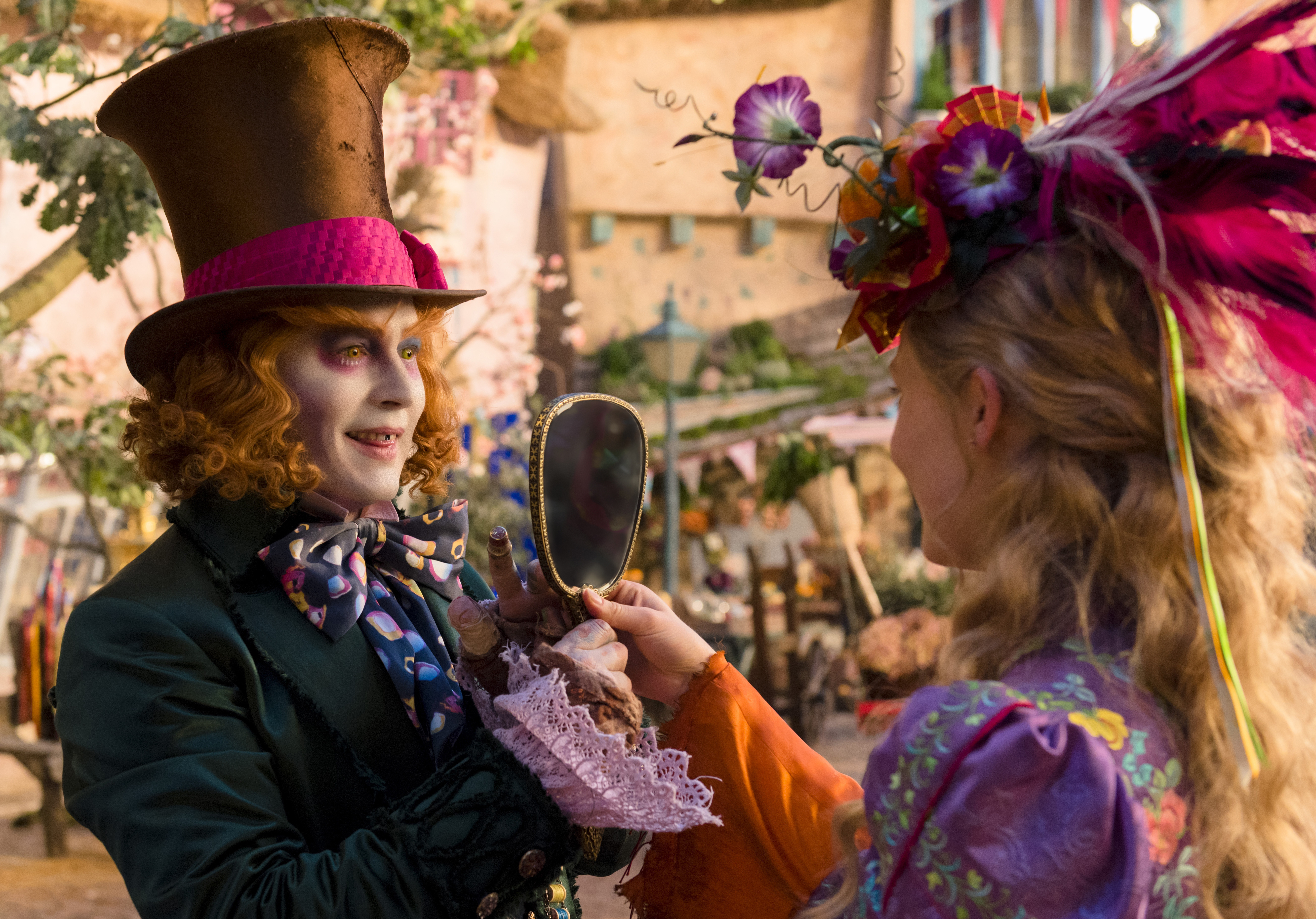
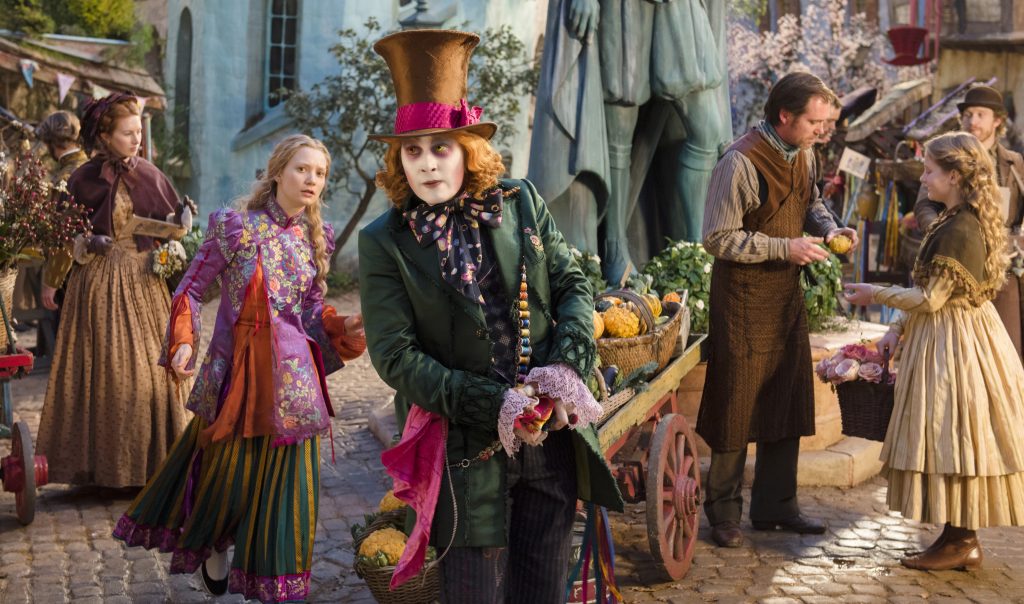
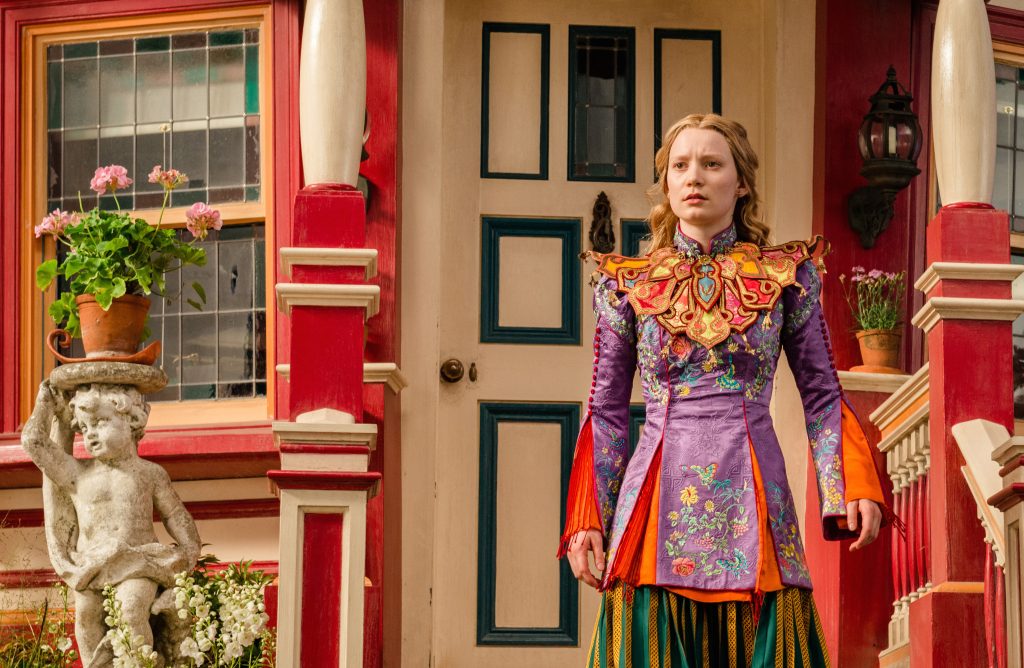


7 Replies to "Alice Through the Looking Glass: 5 Story “Don’ts” We Learned From the Film"
Jesse Koepke June 3, 2016 (8:52 pm)
It is so interesting to read articles like this, because my wife and I really liked Alice Through the Looking Glass. She had seen the first film but I had not. I was surprised afterward to hear that it had flopped, because we thought it was a adventurous, witty, creative movie. Thus your four points don’t really connect with me. I can see what has validity, but I’ll get to that in a moment:
1. Your first point seems heavily lean on the original story of the book. While I love books and would love a faithful adaptation of an original story, I don’t feel it’s an absolutely must. I hadn’t read either Alice stories and when my wife described how Alice was made more of an active character in the original I really liked the idea, and I liked how it progresses in Looking Glass. Breaking from the structure of the book doesn’t automatically lead to a broken world, and changing the main character doesn’t automatically lead to a broken story. The struggle of Aragon in Lord of the Rings is very different from his regal, always sure of his king hood of the books, but it gives his film version depth.
2. Adding a time machine to the story felt like it fit right in. It’s a wacky world where you could actually talk to Time himself, and it completely makes sense that he would be able to move through time. And how would he do that? A vehicle! I thought it was a creative idea and led to great visuals (and also witty jokes about Time himself). To me the world down the rabbit hole was a world where anything was possible, so whatever showed up on screen I was totally open to, and it felt like a natural part of this crazy world and not the screenwriter’s hand reaching in.
4. To my wife and I, Alice felt active, adventurous, and caring. What does she want? She wants to take care of her family. In the real world that is her ship, her crew, her mom, and the memory of her dad. In the other world, that is all her friends, particularly Hatter. She wants to do whatever she can to help and save them. I think that makes her an active character with a specific goal to fight for. That sounds like a great character to me.
3/5. You’ll notice I skipped 3, and that is because I think it’s a valid point. You can see the side character moving front and center happen with most characters Johnny Depp plays. The Pirates of the Caribbean movies slowly became more about him; the Lone Ranger had the sidekick as a main part of the story. This can definitely be a curse, such as when side characters in animated films meant for comedy relief get their own movies (Kronk’s New Groove was sadly so boring), and Johnny Depp definitely gets close to this. But it’s also amazing letting his characters fill out, because he just nails them. Seeing the Hatter for the first time was fascinating for me, as was Time and the Heart Queen. I loved getting to see their back stories and the creative ways in which the sisters’ journeys led to their present day characters. In this case I was glad to let a minor complication become the main story, because it was fascinating to see—and I thought a really creative way of explaining a character’s backstory without undercutting their present day power.
I feel like the Alice stories are as much about the bizarre, quirky characters she meets as much as they are about her. And a basic element of fairy stories is getting pulled into another world that isn’t about you, where you aren’t the main character. When Alice goes through the Looking Glass she helps her friends recover what they need, and she in turn learns what she needs in her world. That to me sounds like a great adventure and I’m sad others haven’t seen that.
Vincent June 3, 2016 (9:09 pm)
Johnny Depp was the 800-pound gorilla in the room, and just as was the case in the initial Disney live-action “Alice” or in “The Lone Ranger,” no one in production had the guts to tell this “emperor” that his clothes were (figuratively) ill-suited and both distorted and weakened the story.
Lilia June 13, 2016 (7:25 pm)
Great stuff! Must tweet about it now.
Grunhilda June 13, 2016 (9:43 pm)
Clearly something was wrong with the movie. I loved the first one and I was excited to see Alice nearly grown up being her own woman. It was all downhill from there. Johnny Depp is one of my favorite actors but there was way too much of him in this film where he was not the main character. The time machine was totally out of place and only served to maximize confusion. I really didn’t care if the Hatter got his family back. It wasn’t about Alice. The Red Queen was a tedious character also out of place and overdone. I left the theater wishing that I saved my $6 and listened to something on the radio.
Shubbaramman June 15, 2016 (9:15 am)
Alice character was very sensitive and in order to make her way to the home, she fights by her thinking prowess. Johnny Depp did not do justice to the role and even though he was one of the main characters, his character wavered a lot till the end. The Red Queen was also a very complex and in some places unseemly make us to hate her character so much that the character lost its charm.
Peyton Quinn June 29, 2016 (10:20 pm)
Good thoughts here. To me the film ‘had no audience from the start’. It is not a children’s film parents take their kids to. Nor is it an adults film or story. All the other points made have some weight but they only detail more nails in the coffin of this production. It’s really fairly simple, who is going to want to see it and why? The producers lost sight of that fundamental question. Hence, they produced a lavish film with big stars that few were interested in seeing.and that fewer film goers would encourage anyone else to go see either.
David November 19, 2018 (3:46 pm)
The movie is incredible and has so many powerful messages and clever details in the story, for example how everything in Underland is a mirror (pun probably intended) of the situations Alice’s facing, the female hysteria thing and more. But these kind of articles prefer to focus on minor details and on how the movie it’s not “true to the book”. Come on, it’s an ADAPTATION.